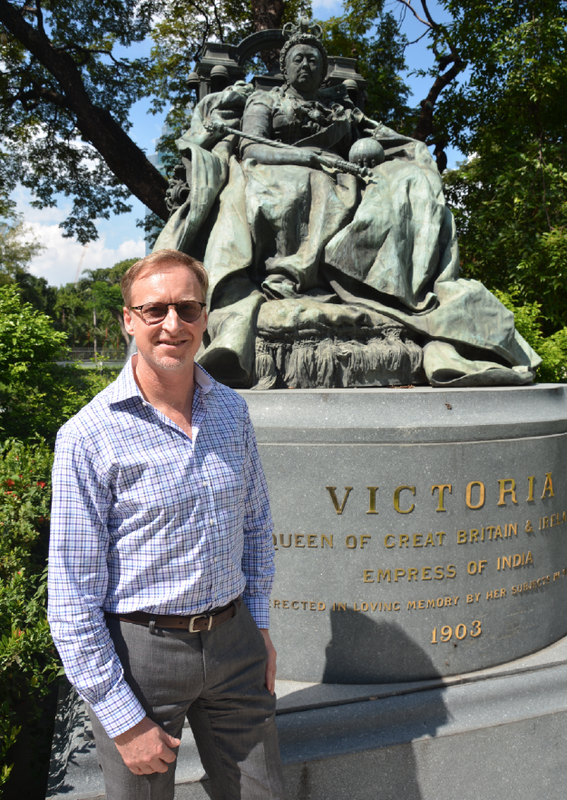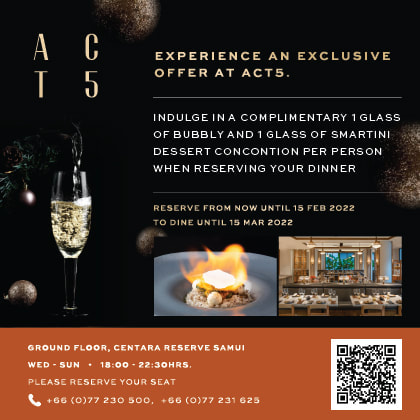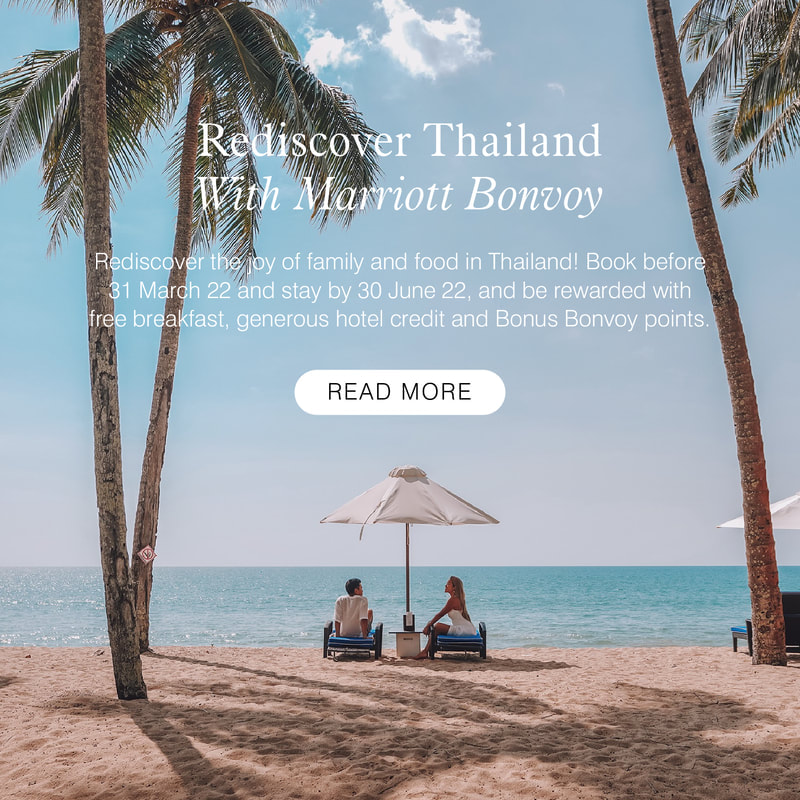With the future of its embassy in doubt, the UK's senior diplomat in Thailand H.E. Brian Davidson could be
The Last Ambassador
to occupy the iconic Residence on Bangkok's Wireless Road
By Colin Hastings
| FOR the next four years, a rare and beautiful house of undoubted historical significance, located on some of the most desirable and expensive real estates in Bangkok, will be occupied by Britain’s new Ambassador to Thailand, Brian Davidson. That’s the plan. Whether or not this actually transpires is entirely in the hands of Britain’s Treasury and its Foreign & Commonwealth Office in London’s Whitehall. Right now, the future of the 90-year-old house, along with its lush and wonderfully serene gardens and the other buildings that make up the British Embassy compound on Wireless Road, is in limbo. And although it’s been widely reported this green oasis in the heart of the city is up for sale for an eye-watering 18 billion baht, the Ambassador himself is in some doubt about its fate. “Nothing has been decided,” he declares in an exclusive interview with The BigChilli. “The Treasury and the FCO hold global reviews of the estates every two or three years, and now they’re now looking at how we’re using this compound. It’s normal in every post.” The sale of the British Embassy is a hot topic in Bangkok. Expats are outraged that their country’s much-loved mission is on the chopping block, especially after the indignity of seeing the front section of the compound being sold off to make way for a department store and hotel a few years ago. Many Thais are also astonished at the British government’s apparent decision to vacate its “crown jewel” in the capital, saying it will adversely affect the UK’s standing in Thailand on many levels. |
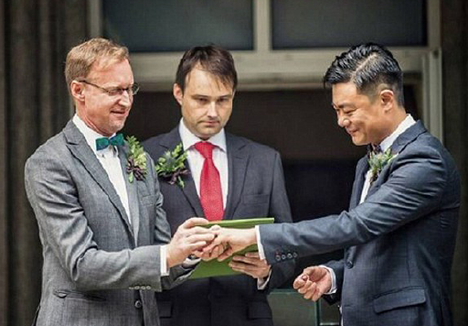 Brian and Scott, marriage at the British Embassy in Beijing
Brian and Scott, marriage at the British Embassy in Beijing Brian, new to the job and still feeling his way in its complexities, is aware of the controversy swirling around the future of the British Embassy. “It’s the elephant in the room,” he admits with a telling note of sadness. “But I don’t believe the sale is a fait accompli.”
The Ambassador is no stranger to controversy. In 2014, while serving as Consul General in Shanghai, Brian raised eyebrows in China when he married his husband, Scott Chang, in one of the first same-sex marriages at the British Embassy in Beijing. Overseeing the ceremony was the British Ambassador Sir Sebastian Wood.
Although gay unions are not legal in China, the couple’s marriage led to them being lauded as gay icons in China after Brian posted pictures of his wedding on Sina Weibo, China’s version of Twitter. His accompanying comment: “I am very proud that the law in the UK today affords me the same rights as any other British national to be married to whomever I love,” was reported some 30,000 times. In an interview with the Telegraph newspaper, Brian said he was astonished by the response. “It was completely unexpected.”
Every British Ambassador to Thailand brings his own style and individuality to the job. Brian is no exception. Tall, slim and softly spoken, he is determined to do things differently in so many ways. For instance, the day-to-day running of the embassy is to be “less formal and stuffy” than in the past. And he’s encouraging staff to dispense with ties and jackets except, of course, when meeting senior Thais and important overseas guests. Otherwise, there’s no reason to be suited and booted.
“That’s the way it is in the UK these days. With suits and ties, people are less inclined to open up,” declares the 52-year-old Ambassador, dressed accordingly in an open neck shirt and fashionable slacks.
Brian also hopes to bring this less formal approach to events at the embassy. This was evident recently when he hosted ‘Democracy Day,’ which featured a ‘Speakers’ Corner’ in the style of the famous Hyde Park debating forum. “It’s partly my house so I want to give it a bit of a personal touch.”
Within this same building are the Ambassador’s office and private quarters, where Brian and Scott are now raising their five-month-old baby son, Eliot, who was born by surrogacy in California. Such close proximity allows Brian to nip upstairs to see Eliot and “give him a cuddle.”
Brian’s own story began in Holywood, Northern Ireland, where he was born to an Irish mother and Scottish father. After gaining a BA (Honours) in Law at Cambridge University, he joined the FCO in 1985.
He has extensive experience in Asia, having started his career in Beijing (1988-1992), then as Consul General in Guangzhou and then Shanghai between 2006 and 2015. Other overseas posts have included Lithuania and Australia.
While in the UK, Brian worked for the Cabinet Office as an analyst on international terrorism. It coincided with a particularly turbulent time - the Lockerbie bombing, as well as unrest in the Middle East and Afghanistan. “I had to absorb information and material from everywhere, and every week I had to write a paper for No. 10 (Downing Street). It was a bit like being back at university. During the first Iraq crisis, I worked nights to brief London and the US on what happening over there. It was an amazing time for me.”
For a short period, Brian was seconded to the private sector, working for International Financial Services London as deputy chief executive. This brought him into contact with stockbrokers, bankers, shippers and successive Lord Mayors. More importantly, it allowed him to learn about managing and leading people in a different environment from the FCO and its ethos of “bright, motivated and highly intelligent workers.”
He rejoined the FCO after being offered the “perfect job” back in China, where he had already spent four years and would then spend a further nine years before his posting to Thailand.
The Ambassador is no stranger to controversy. In 2014, while serving as Consul General in Shanghai, Brian raised eyebrows in China when he married his husband, Scott Chang, in one of the first same-sex marriages at the British Embassy in Beijing. Overseeing the ceremony was the British Ambassador Sir Sebastian Wood.
Although gay unions are not legal in China, the couple’s marriage led to them being lauded as gay icons in China after Brian posted pictures of his wedding on Sina Weibo, China’s version of Twitter. His accompanying comment: “I am very proud that the law in the UK today affords me the same rights as any other British national to be married to whomever I love,” was reported some 30,000 times. In an interview with the Telegraph newspaper, Brian said he was astonished by the response. “It was completely unexpected.”
Every British Ambassador to Thailand brings his own style and individuality to the job. Brian is no exception. Tall, slim and softly spoken, he is determined to do things differently in so many ways. For instance, the day-to-day running of the embassy is to be “less formal and stuffy” than in the past. And he’s encouraging staff to dispense with ties and jackets except, of course, when meeting senior Thais and important overseas guests. Otherwise, there’s no reason to be suited and booted.
“That’s the way it is in the UK these days. With suits and ties, people are less inclined to open up,” declares the 52-year-old Ambassador, dressed accordingly in an open neck shirt and fashionable slacks.
Brian also hopes to bring this less formal approach to events at the embassy. This was evident recently when he hosted ‘Democracy Day,’ which featured a ‘Speakers’ Corner’ in the style of the famous Hyde Park debating forum. “It’s partly my house so I want to give it a bit of a personal touch.”
Within this same building are the Ambassador’s office and private quarters, where Brian and Scott are now raising their five-month-old baby son, Eliot, who was born by surrogacy in California. Such close proximity allows Brian to nip upstairs to see Eliot and “give him a cuddle.”
Brian’s own story began in Holywood, Northern Ireland, where he was born to an Irish mother and Scottish father. After gaining a BA (Honours) in Law at Cambridge University, he joined the FCO in 1985.
He has extensive experience in Asia, having started his career in Beijing (1988-1992), then as Consul General in Guangzhou and then Shanghai between 2006 and 2015. Other overseas posts have included Lithuania and Australia.
While in the UK, Brian worked for the Cabinet Office as an analyst on international terrorism. It coincided with a particularly turbulent time - the Lockerbie bombing, as well as unrest in the Middle East and Afghanistan. “I had to absorb information and material from everywhere, and every week I had to write a paper for No. 10 (Downing Street). It was a bit like being back at university. During the first Iraq crisis, I worked nights to brief London and the US on what happening over there. It was an amazing time for me.”
For a short period, Brian was seconded to the private sector, working for International Financial Services London as deputy chief executive. This brought him into contact with stockbrokers, bankers, shippers and successive Lord Mayors. More importantly, it allowed him to learn about managing and leading people in a different environment from the FCO and its ethos of “bright, motivated and highly intelligent workers.”
He rejoined the FCO after being offered the “perfect job” back in China, where he had already spent four years and would then spend a further nine years before his posting to Thailand.
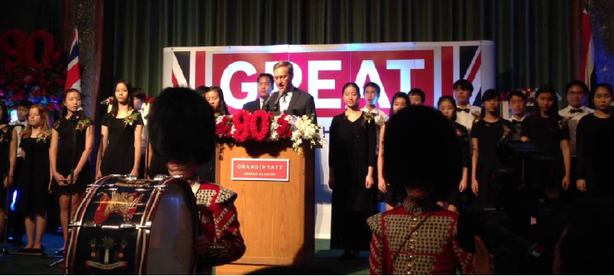
Brian’s major responsibilities as Ambassador here remain largely the same as his predecessors – looking out for British tourists and citizens, reviewing the local political landscape, and improving trade and investment. For the latter, the embassy employs a team of 12 specialists in its UK Trade & Investment section, which increasingly taps into regional teams in places like Singapore for more efficient provision of information and support. Here in Bangkok, the structure works closely with the British Chamber of Commerce Thailand.
The Ambassador is fully behind a new business initiative announced last July. Called the Thai-UK Business Leadership Council, its aim is to pull together senior business leaders from both countries so they can find creative ways to build new and innovative partnerships, as well as encourage both governments to foster trade and investment in each other’s market. Traditionally problematic issues like the Foreign Business Act and other key blockages to doing business in Thailand are likely to figure prominently in discussions.
The first meeting of the council will be held this month. The UK Minister for Trade, Mark Garnier MP, will attend, along with Thai Deputy Minister for Commerce Suwit Maesincee.
As for Brexit, the impact on Thailand is likely to be positive, suggests the Ambassador. “UK needs to look more outside of Europe. We’re strong and solid, and increasingly looking to Southeast Asia, with Thailand as a hub. This country is key to the growth of ASEAN.”
Even though some of the embassy’s services such as the issuing of passports have shifted online, its Bangkok consular section is the UK largest and busiest outside of Spain. Visa application for Thai nationals has been streamlined, according to the Ambassador, who claims that 98% of all visas to the UK are approved. However, he wasn’t able to say how many are rejected once or perhaps several times before final approval.
Brian’s declared intent to stamp his own personality on the embassy also extends to adjusting Thailand’s “outdated” view of the UK. “There’s a lot more to modern Britain – our science, our cutting-edge technology, education, creativity, multi-ethnicity, cultural diversity and investment opportunities. We want to work with Thai people and companies to be part of multi-level UK.”
He has also planned to bring an extra dimension, which he calls ‘values’, to his range of responsibilities as an Ambassador. “I would like to see more support for the development of civil society in Thailand while demonstrating the values inherent in the British way of life. “This is not a solution, merely support” he stresses.
‘Values’ are clearly an aspect of his job that means much to Brian. “I am personally keen to show what the UK can offer and drive forward issues such as LGBT (Lesbian, Gay, Bisexual, Transgender). We can use these to project the UK as a modern, dynamic, outward-looking country that should be your partner of choice.”
Brian first visited Thailand as a tourist in 1987 and has returned many times since. His brother, who lives in Singapore, is married to a Thai lady and they have three children.
Before moving into the embassy compound, Brian and Scott lived in an apartment in Soi Suan Phlu, an area of Bangkok they both got to know and like. “We often ate at the streets carts and enjoyed our gin and tonics in the area’s bars and cafes,” he said.
These days, the couples dining arrangements at the British Embassy are somewhat more sophisticated. But for how much longer is anyone’s guess.
The Ambassador is fully behind a new business initiative announced last July. Called the Thai-UK Business Leadership Council, its aim is to pull together senior business leaders from both countries so they can find creative ways to build new and innovative partnerships, as well as encourage both governments to foster trade and investment in each other’s market. Traditionally problematic issues like the Foreign Business Act and other key blockages to doing business in Thailand are likely to figure prominently in discussions.
The first meeting of the council will be held this month. The UK Minister for Trade, Mark Garnier MP, will attend, along with Thai Deputy Minister for Commerce Suwit Maesincee.
As for Brexit, the impact on Thailand is likely to be positive, suggests the Ambassador. “UK needs to look more outside of Europe. We’re strong and solid, and increasingly looking to Southeast Asia, with Thailand as a hub. This country is key to the growth of ASEAN.”
Even though some of the embassy’s services such as the issuing of passports have shifted online, its Bangkok consular section is the UK largest and busiest outside of Spain. Visa application for Thai nationals has been streamlined, according to the Ambassador, who claims that 98% of all visas to the UK are approved. However, he wasn’t able to say how many are rejected once or perhaps several times before final approval.
Brian’s declared intent to stamp his own personality on the embassy also extends to adjusting Thailand’s “outdated” view of the UK. “There’s a lot more to modern Britain – our science, our cutting-edge technology, education, creativity, multi-ethnicity, cultural diversity and investment opportunities. We want to work with Thai people and companies to be part of multi-level UK.”
He has also planned to bring an extra dimension, which he calls ‘values’, to his range of responsibilities as an Ambassador. “I would like to see more support for the development of civil society in Thailand while demonstrating the values inherent in the British way of life. “This is not a solution, merely support” he stresses.
‘Values’ are clearly an aspect of his job that means much to Brian. “I am personally keen to show what the UK can offer and drive forward issues such as LGBT (Lesbian, Gay, Bisexual, Transgender). We can use these to project the UK as a modern, dynamic, outward-looking country that should be your partner of choice.”
Brian first visited Thailand as a tourist in 1987 and has returned many times since. His brother, who lives in Singapore, is married to a Thai lady and they have three children.
Before moving into the embassy compound, Brian and Scott lived in an apartment in Soi Suan Phlu, an area of Bangkok they both got to know and like. “We often ate at the streets carts and enjoyed our gin and tonics in the area’s bars and cafes,” he said.
These days, the couples dining arrangements at the British Embassy are somewhat more sophisticated. But for how much longer is anyone’s guess.

